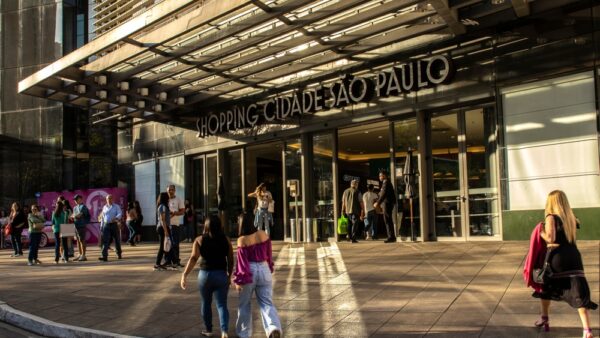After recording its highest monthly growth for April since 2013 (0.56 percent), Brazil’s economy contracted by 2 percent in May, according to the Central Bank’s economic activity index (IBC-Br), considered a reliable predictor of the country’s GDP.
Compared to April 2022, the IBC-Br grew by 2.15 percent. The indicator accumulated an increase of 3.61 percent in the year and of 3.43 percent over 12 months.
It was an unexpected drop, the largest since the beginning of the pandemic in Brazil, contradicting the market forecast of stability or a small decline, according to polls by Refinitiv and Reuters.
Although the country is facing the effects of a restrictive monetary policy, with the Selic benchmark interest rate at 13.75 percent, analysts saw reasons to believe in a better month of May, such as the consistent disinflationary process, the good performance of the agricultural sector, and the resilient labor market.
The IBC-Br is made up of proxies linked to production volume monitoring of agriculture, manufacturing, and services output, in addition to an index that monitors the volume of taxes collected, but the data are not disclosed with an analysis.
What may have contributed to the drop in economic activity in May, despite better-than-expected growth in the services sector (0.9 percent), is the 1 percent drop in retail and the staggering advance of the industrial sector, whose production grew by 0.3 percent, but still below pre-pandemic levels.
The Central Bank’s Monetary Policy Council (Copom) meets again in August and has already signaled that it may begin a cycle of cuts to the Selic rate, as long as inflation continues to fall.
Higher interest rates are an oft-used strategy to curb consumption and borrowing in an effort to slow down inflation. Brazil began its monetary tightening earlier than most countries, in March 2021. The market now expects the monetary authority to be one of the first to start weaning off this bitter pill.
Economist André Perfeito says it would be unreasonable to expect steady growth in the Brazilian economy now. On the contrary, GDP in the second quarter is likely to fall due to a low baseline for comparison with 2022, and the political dynamics of these results are worth thinking about.
“The bad result will fall on the shoulders of the Central Bank [even without being solely responsible for it], and there will be even more pressure to cut interest rates,” says Mr. Perfeito. He believes conditions could lead to an even more consistent cut of 0.50 percentage points.
Alberto Ramos, head of economic research for Latin America at Goldman Sachs, disagrees. “In our assessment, initiating the easing cycle with a 50bp cut would likely require a combination of further improvement of inflation expectations, favorable inflation surprises, and a USD/BRL at or below 4.80.”
The market remains optimistic. According to the Central Bank’s Focus report, a weekly survey of leading institutions, analysts maintained their inflation expectations at 4.95 percent this year, while raising their GDP forecasts from 2.19 percent to 2.24 percent.
In addition to domestic factors, one variable that could cause the market to rethink its position next week is the lower-than-expected result for the Chinese Q2 GDP. Data released today showed the country’s output grew just 0.8 percent between April and June quarter, down from 2.2 percent in the first three months of 2023.
China’s economy expanded 6.3 percent from a year ago, compared with market expectations of 7.3 percent, according to a Reuters poll.
“The real estate sector, which accounts for about 25 percent of the country’s GDP, is the main factor pushing growth downwards. With declines in investment, prices, and property sales, the sector’s performance has important ramifications in two other areas: local government revenues, which depend in part on the sale of land for real estate development, and families’ confidence, who have 70 percent of their wealth invested in real estate,” commented the executive director of the Brazil-China Business Council, Claudia Trevisan, on LinkedIn.
But even with the recent slowdown in economic activity, she ponders, China should end the year growing close to the government’s target of 5 percent.
- You should listen to our podcast: Brazil and China’s twin crises


 Search
Search










































